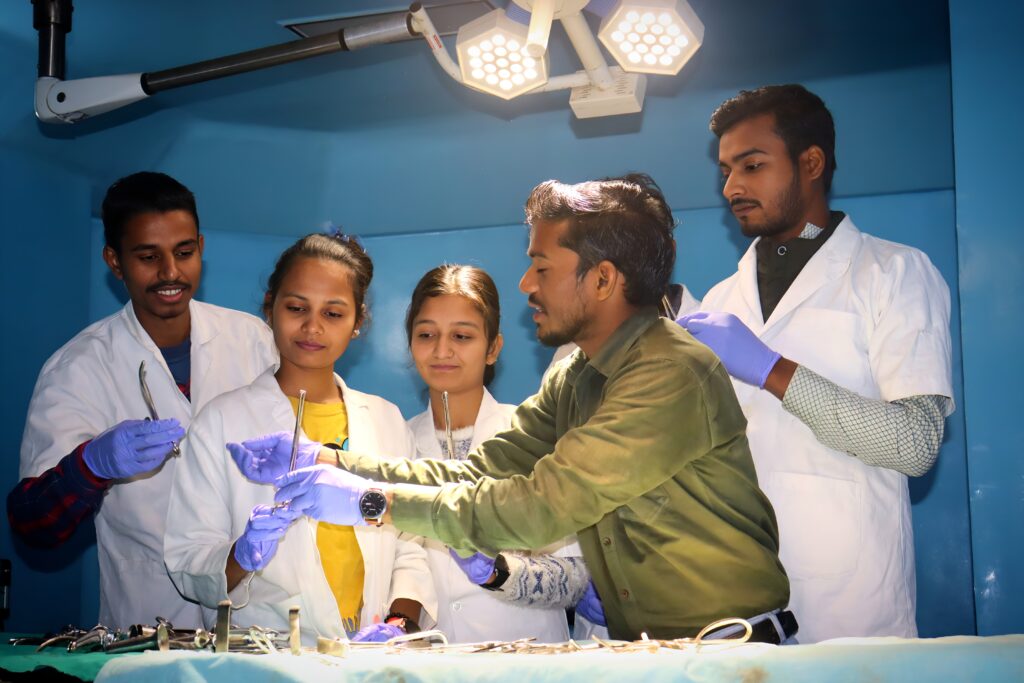Post Basic B.sc Nursing
Post Basic B.Sc Nursing Courses at Victoria College of Nursing & Paramedical Science
Course Overview: The Post Basic Bachelor of Science in Nursing (Post Basic B.Sc Nursing) program is designed for registered nurses who wish to advance their education and enhance their professional skills. This two-year course builds on the knowledge and experience of nursing graduates, focusing on advanced nursing practices and leadership skills.
Curriculum Highlights:

Advanced Nursing Theory:
- In-depth study of advanced nursing concepts, including complex patient care, nursing ethics, and health assessment techniques.
Clinical Practice:
- Extensive clinical training in various healthcare settings, allowing students to apply theoretical knowledge to real-world scenarios. This includes rotations in specialized areas like critical care, pediatrics, and community health.
Specialization Options:
- Opportunities to specialize in areas such as geriatric nursing, mental health nursing, or emergency nursing, enabling students to focus on their interests and career goals.
Research and Evidence-Based Practice:
- Emphasis on research methodologies and the application of evidence-based practices in clinical decision-making, fostering critical thinking and innovation in nursing care.
Leadership and Management:
- Training in nursing leadership, management principles, and healthcare policies, preparing graduates for supervisory and administrative roles in healthcare settings.
Health Promotion and Education:
- Courses aimed at improving community health through education, focusing on prevention strategies and health promotion activities.
Interdisciplinary Collaboration:
- Training on working collaboratively with other healthcare professionals to provide comprehensive patient care.
Job Opportunities After Post Basic B.Sc Nursing
Graduates of the Post Basic B.Sc Nursing program have a variety of advanced career opportunities in the healthcare field. Some potential job roles include:
Clinical Nurse Specialist:
- Focus on specific areas of nursing practice, providing advanced care and consultation in specialties like cardiology, oncology, or pediatrics.
Nurse Manager/Administrator:
- Oversee nursing staff and operations in healthcare facilities, managing budgets, staffing, and quality of care.
Nurse Educator:
- Teach nursing students in academic settings or provide training and professional development for existing nursing staff.
Public Health Nurse:
- Work in community health settings, focusing on health education, disease prevention, and health promotion programs.
Research Nurse:
- Involved in clinical research projects, collecting and analyzing data to support the development of new treatments and practices.
Nursing Informatics Specialist:
- Utilize healthcare technology and data management to improve patient care, efficiency, and outcomes within healthcare organizations.
Health Policy Analyst:
- Engage in policy development and analysis, advocating for healthcare reforms and improved nursing practices at local, national, or global levels.
Emergency Nurse:
- Work in emergency departments, providing critical care to patients experiencing acute medical emergencies.
Home Health Care Nurse:
- Provide nursing care in patients’ homes, managing chronic conditions and rehabilitation needs.
Travel Nurse:
- Take on temporary nursing assignments in various locations, providing flexibility and diverse experiences in different healthcare settings.
Conclusion
The Post Basic B.Sc Nursing program at Victoria College of Nursing & Paramedical Science equips registered nurses with advanced knowledge and skills, preparing them for leadership roles in healthcare. With a strong emphasis on clinical practice, research, and interdisciplinary collaboration, graduates are well-prepared to meet the evolving challenges of the nursing profession and contribute significantly to patient care and health outcomes.
